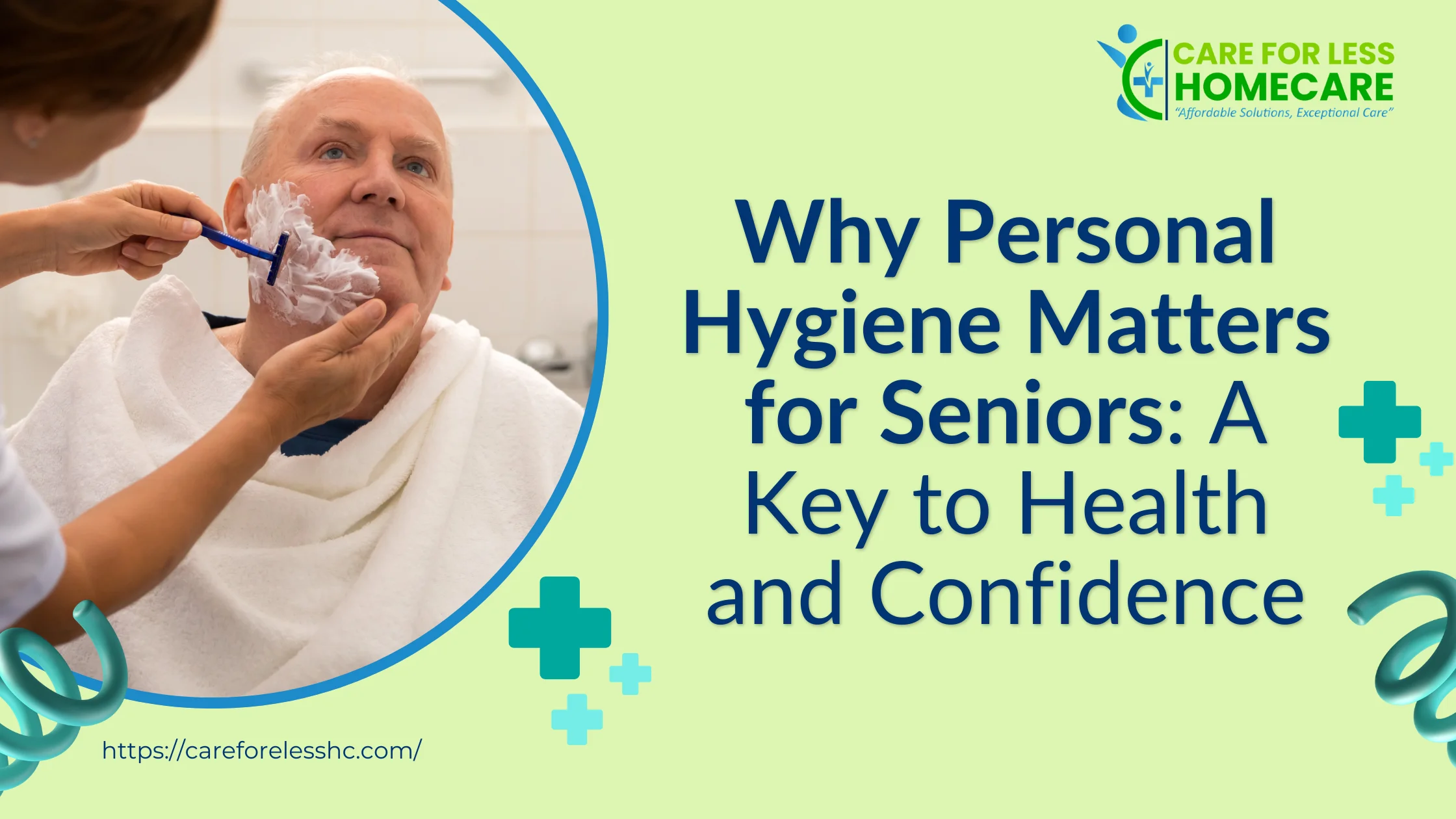Summary
Personal Hygiene Matters for seniors is not just about staying clean—it’s a vital part of maintaining physical health, emotional well-being, and personal dignity. From preventing infections to improving mood, consistent hygiene support can transform an aging adult’s quality of life.
Introduction
As individuals age, tasks that once seemed routine—like bathing, grooming, and dressing—can become challenging. Personal hygiene for seniors plays a crucial role in maintaining not only physical health but also emotional well-being and dignity. For family members and caregivers, understanding this essential aspect of elderly care is key to providing compassionate and effective support.
Table of Contents
The Link Between Hygiene and Senior Health
Good personal hygiene habits help prevent skin infections, dental issues, body odor, and other health complications. As the immune system weakens with age, seniors become more vulnerable to infections. Regular bathing, oral care, and handwashing can significantly reduce the risk of illness.
Benefits of Personal Hygiene for Seniors
- Reduces risk of illness: Keeping your skin and nails clean helps remove harmful bacteria and fungi, significantly lowering the chances of developing infections or illnesses related to poor hygiene.
- Improves skin condition: Regularly cleansing and moisturizing your skin keeps it hydrated, reduces dryness, and helps prevent irritation, rashes, or conditions like eczema, especially in harsh weather.
- Maintains oral health: Daily brushing and flossing remove food particles and plaque, which helps prevent cavities, gum disease, and bad breath, contributing to long-term dental and overall health.
- Boosts mental health: Practicing good personal hygiene can improve mood, boost self-esteem, and create a sense of routine and control, all of which contribute to emotional well-being and confidence.
Common Challenges Seniors Face with Hygiene
Aging brings physical limitations such as joint pain, balance issues, and cognitive decline, which make it difficult for seniors to maintain hygiene independently. Fear of falling in the bathroom, confusion caused by dementia, or arthritis can reduce their ability and willingness to bathe or change clothes.
How Caregivers Can Help
In-Home Personal Hygiene Support for Seniors
Caregivers can make a major difference by offering respectful, patient assistance. Their role is not just physical but also emotional. Maintaining the dignity of the elderly is as important as the hygiene task itself.
- Use non-slip mats and shower chairs for safer bathing.
- Set routines to encourage daily hygiene habits.
- Use gentle reminders and cues for seniors with memory issues.
- Choose appropriate hygiene products for sensitive or aging skin.
- Always prioritize privacy, comfort, and consent.
For seniors needing more tailored care options, you might explore this blog on Choosing the Right Flexible Home Care: Live-In, Live-Out, or Hourly?. It can help families find the right arrangement that supports daily hygiene needs.
Emotional Benefits of Good Hygiene
Maintaining hygiene boosts a senior’s self-esteem, especially when they interact with family, friends, or healthcare workers. Feeling clean and well-groomed increases social confidence and reduces the risk of isolation and depression.
According to a report from the National Institute on Aging, hygiene-related neglect can contribute to low self-esteem and anxiety in older adults.
Educating Families and Providing Tools
Home care providers can educate families on the importance of hygiene by:
- Providing checklists for daily hygiene routines
- Offering training on gentle hygiene techniques
- Recommending assistive tools and adaptive devices
Resource National Institute on Aging – Hygiene and Grooming Tips
Conclusion
As aging progresses, personal hygiene assistance becomes an essential part of daily care. Whether you’re a family caregiver or part of a professional care team, supporting hygiene routines with compassion and respect empowers seniors to feel confident, valued, and healthy.
If you’re seeking expert help, consider speaking with a licensed home care agency experienced in elderly hygiene support to create a safe and dignified care plan.


